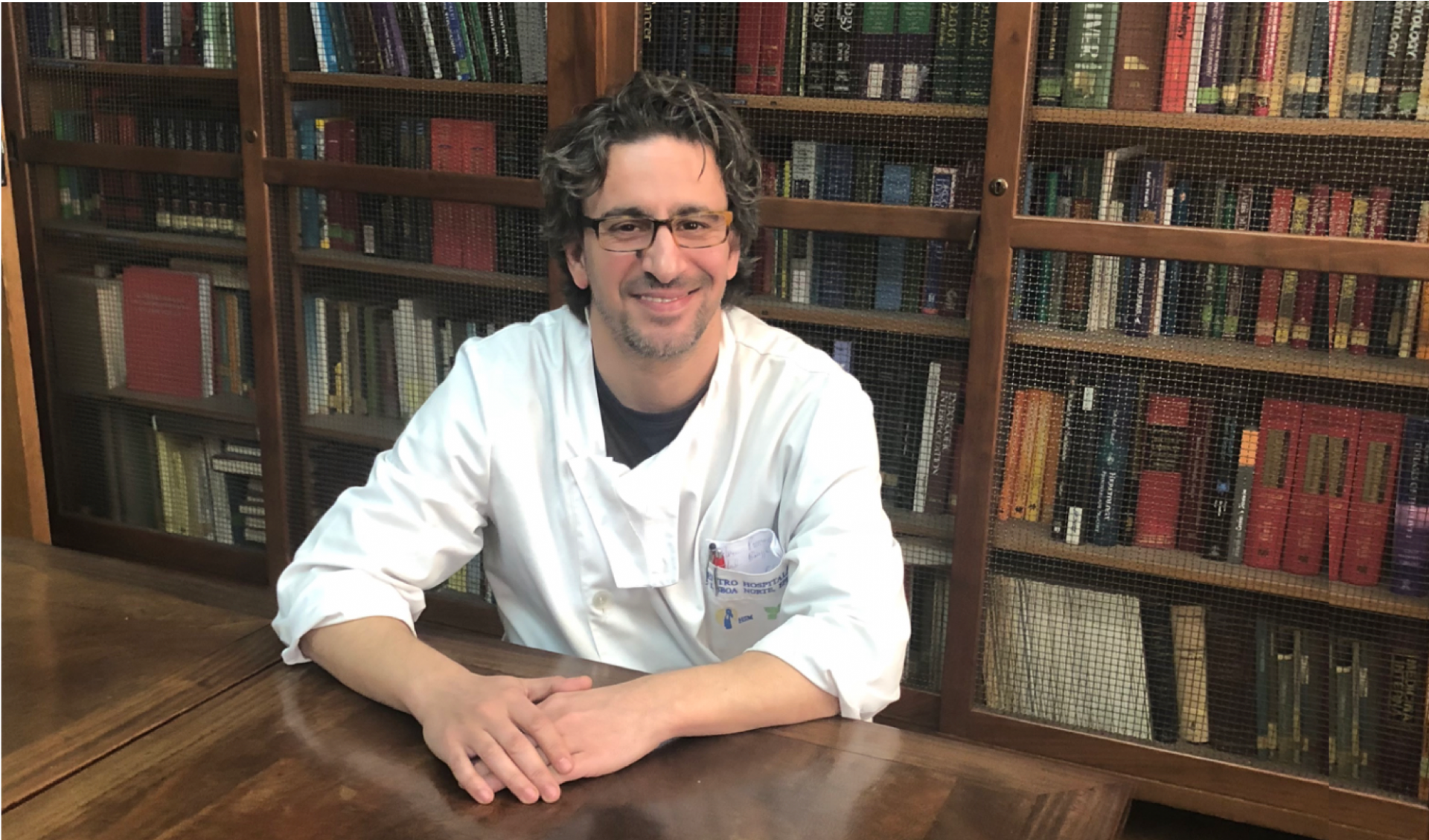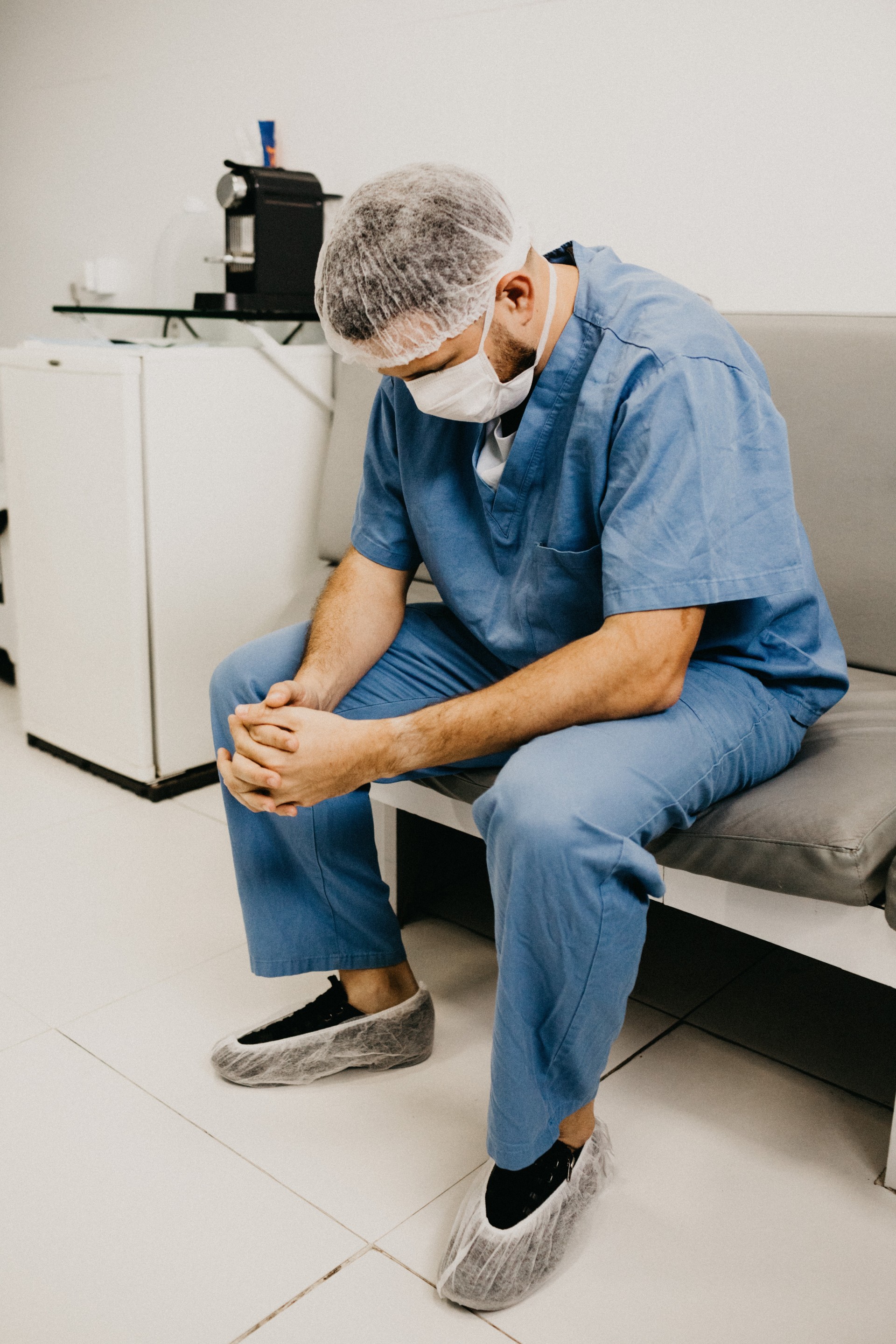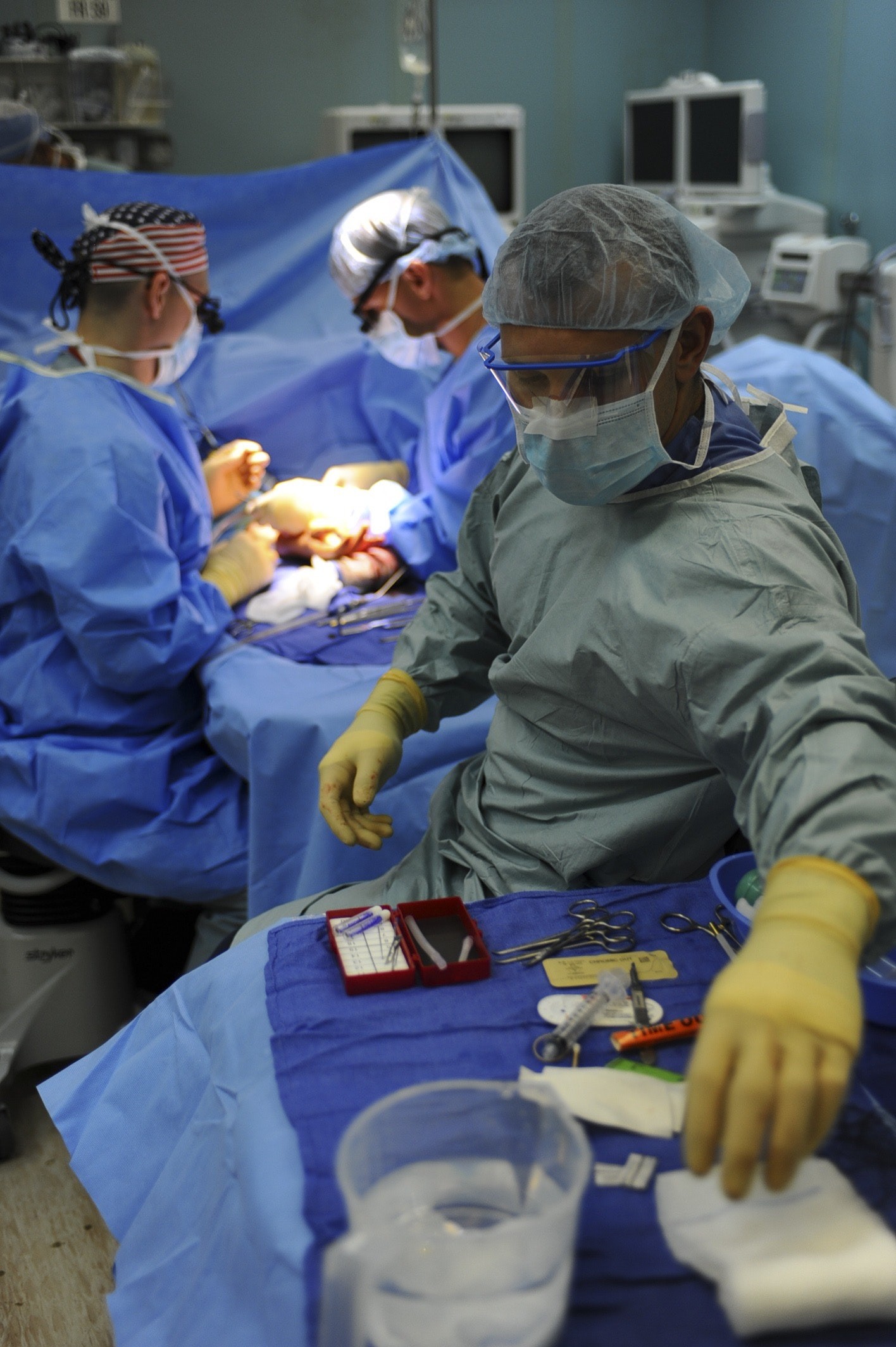
Burnout is a theme that has been mentioned a lot in recent years and is present in several professions. We often hear the consequences that overwork and other factors can have on people. But, what is burnout after all? And how does it affect the medical community?
We talked with Professor David Barreira, who has a Ph.D. in Biomedical Sciences from our Faculty to obtain information on this topic. In addition to being a clinical psychologist at the Gastroenterology and Hepatology Service of the Northern Lisbon University Hospital Centre (CHULN) and a free professor in several subjects at the FMUL’s Master' Degree, he was also a member of the technical-scientific team of the Portuguese Medical Association’s National Study- “Burnout in the Medical Class in Portugal: Psychological and Psycho-sociological Perspectives”- a National study prepared at the request of the Portuguese Medical Association. He was also tutor of the GAPIC FMUL Project together with Professor Sílvia Ouakinin - “Burnout Screening at a Portuguese Medical School (FMUL)” - with students Joana H. Oliveira and Sara Alves.
With his help and the material generously sent by David Barreira, we reproduce here what we have learned about burnout, especially in the medical community.
About burnout
The concept of burnout has evolved over time and the most recent definitions refer to burnout as "a state of physical, emotional and mental exhaustion caused by involvement, for a long time, in emotionally stressful situations". We have to take into account that the professional burnout syndrome is three-dimensional: the dimension of emotional exhaustion in which there is a depletion of emotional energy necessary to meet the requirements of work, depersonalization/cynicism in which there are distant responses by professionals in relation to their clients and the ineffectiveness/low performance where a decline in the feeling of personal competence and performance occurs.
There is a tendency to confuse stress and burnout, but they are different concepts, although related: stress implies an over involvement in relation to something, it has a more physical aspect, with emotions being hyper-reactive. Burnout, on the other hand, is a defence mechanism characterized by giving up something, the main damage being emotional, with emotions becoming weakened. Several studies have identified professional stress as one of the factors for the occurrence of burnout.

Main results of the project on the National Study “Burnout in the Medical Class in Portugal: Psychological and Psycho-sociological Perspectives
This study of burnout in the Portuguese medical profession was extremely important for the characterization of this syndrome in the population in question, because despite burnout being extensively documented, in Portugal there was not enough data, only partial data, to create a comprehensive picture of burnout in the medical class. In this study, the universe consisted of all professionals registered with the Portuguese Medical Association, professionally active and with a possible contact (43983 subjects, out of a total of 49152 registered doctors) and there was a total response rate of 21% (9176 inquiries).
According to the final report of this study, the results show that “66% of the doctors surveyed reported a high level of Emotional Exhaustion, 39% had a high level of Depersonalization and about 30% reported a high Decrease in Professional Achievement”. It is also interesting to note that there are distinctions at the gender level: “Women reported higher levels of Emotional Exhaustion and men higher levels of Depersonalization”.
The study seems to indicate that, for Portuguese doctors, it is the organizational factors that have greater weight in explaining the dimensions of burnout to the detriment of individual or system factors. The levels of engagement (involvement with work) and personal well-being are high in the global sample, which eventually indicates a good level of adaptive skills on the part of Portuguese doctors.
Thus, “the study reveals a significant presence of burnout indicators in the doctors surveyed. It also reveals that these conditions can negatively affect the physical and mental health of doctors, negatively influence their relationship with the family, as well as the quality of their professional performance. In addition to the suffering and risk associated with the state of exhaustion, depersonalization or decreased professional achievement, which are felt at individual level, the negative impacts on the organizational dimension are worrying”.
Strategies to deal with burnout
The high prevalence of burnout in physicians is worrying because it can affect the quality and safety of how services are provided to patients, in addition to decreasing their quality of life and health. Thus, intervention strategies are fundamental.
Intervention strategies will have to occur across different levels since there are several factors (individual, organizational and system) that enhance burnout.
Obviously, more in-depth research is needed to identify, effectively, what will be the most effective strategies for this particular group and also to consider continuing the research more broadly to reach more doctors, creating groups to analyse different specialties that have their own particularities.

But there is good news. One aspect that emerges from the study and that could be a clue to possible effective strategies is the level of professional involvement of doctors: 75% have above average levels of engagement with work. Thus, the study concludes that, “given its role as a potential buffer for the impact of professional stress on burnout indicators, the development of organizational policies and practices to support the professional involvement of Portuguese doctors therefore deserves the decision makers’ attention”.
For those interested, this is the link to the final report “Burnout na Classe Médica em Portugal: Perspetivas Psicológicas e Psicossociológicas”
Burnout screening at a Portuguese Medical School (FMUL)
“This work aimed to determine the prevalence of burnout in year 1-5 students of the Integrated Master in Medicine at the Faculty of Medicine of the University of Lisbon and to research its association with individual risk factors such as perceived stress and emotional regulation strategies, and the levels of anxiety or depression. The sample included 390 students, of whom 176 (45%) showed burnout indicators.
Although in this work it is not possible to establish causal relationships, the associations observed between the variables representing difficulties in the face of situations generating greater tension, with a negative emotional impact (emotional regulation strategies) and the dimensions of burnout, suggest that they represent a factor of vulnerability. On the other hand, the association between these dimensions, perceived stress, anxiety and depression, alerts to the need to work on these experiences as a cause for and/or effect of burnout. The data obtained reveal a significant prevalence of burnout, as well as significant relationships between anxiety, depression and dimensions of burnout. The need to implement effective preventive and intervention methods is evident, integrating the identified protective and vulnerability factors”.
Sónia Teixeira
Editorial Team


